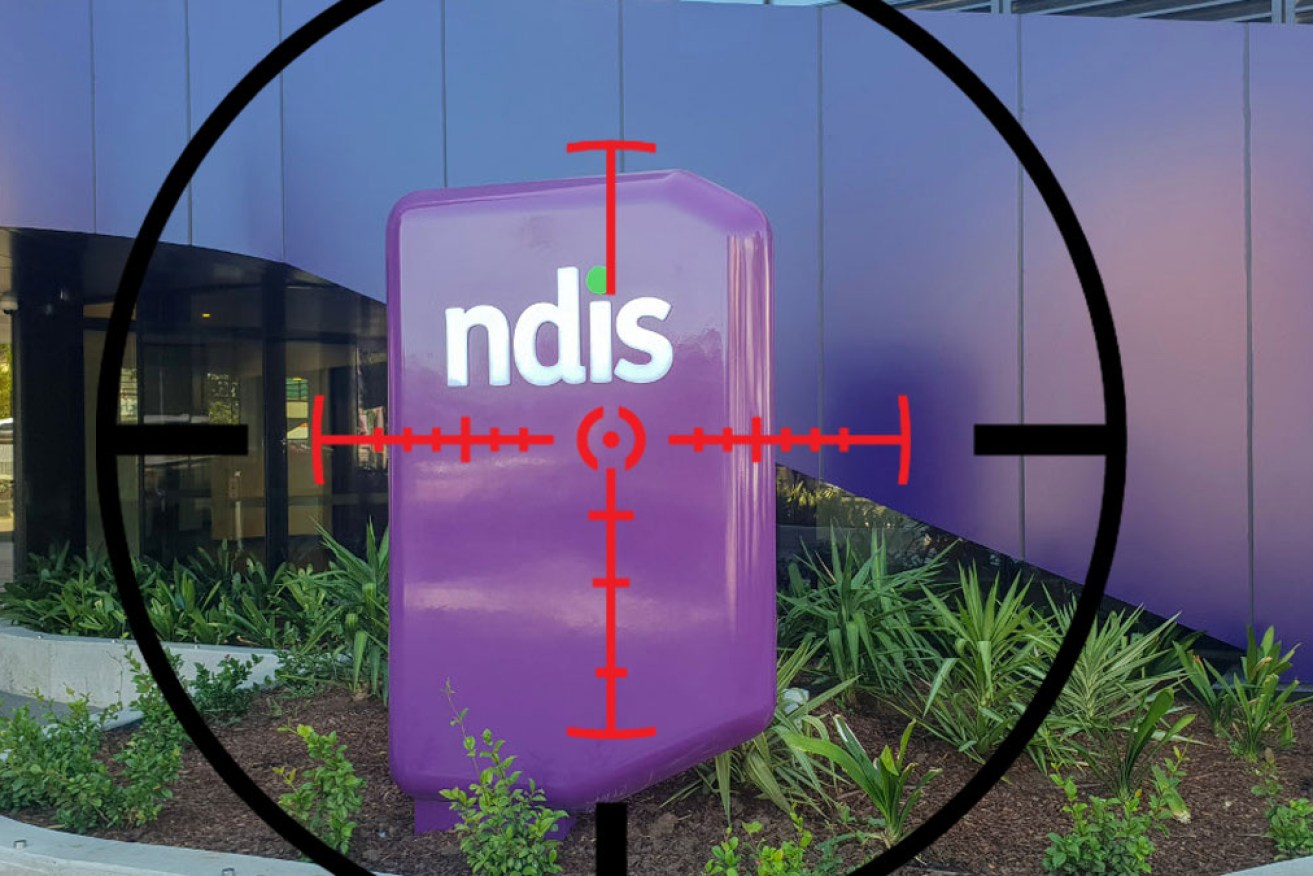Michael Pascoe: NDIS honeypot inevitably attracting fat flies


NDIS providers are in the sights of for-profit operators, Michael Pascoe writes.
The honeypot of vast pools of government money inevitably attracts flies, from the two-bob rorters to billion-dollar corporates.
What they have in common is adding the expense of a profit margin needing to be skimmed between the taxpayer, the actual care provider and the client.
We’ve seen this movie before with every government service that has been privatised/outsourced/flogged off to the for-profit sector, from tertiary education to aged care to employment services to child care.
And now the NDIS.
If you wanted a bell to ring, for mine it was news that mediocre for-profit private health insurer NIB was raising $150 million towards the price of buying Australia’s seventh-largest NDIS provider, Maple Plan, and signalling that it wants to buy more.
The full price has not been disclosed but, hey, take a wild guess that another $50 million is coming out of NIB’s bank account, so $200 million for a four-year-old company that employs 60 staff and had revenue (not profit) of a bit under $11 million in the year to June 30.

For-profit private health insurer NIB wants to buy NDIS provider Maple Plan.
Wait, there’s more
Meanwhile, there’s also Mable, an aged care and NDIS service provider with the cute tag line “profit for purpose” and an interesting assortment of investors led by Ellerston Capital, the hedge fund founded by Kerry and James Packer, and including an arm of the Murdoch empire and a bunch of wealthy individuals with connections to the Liberal Party.
(“Profit for purpose” might sound nice at first glance, but in my experience every enterprise has purpose for the profit it hopes to make, overwhelmingly dividends for shareholders.)
And last year Mable enjoyed a $100 million equity injection by private equity giant, General Atlantic.
As the saying nearly goes, $100 million here, $150 million there and pretty soon you’re talking serious money.
Poor track record
There is other serious money seeking to make more serious money out of the NDIS – the promise of a honeypot growing to $60 billion will do that – never mind the many smaller outfits.
And, just like every other government honeypot, the question eventually will arise about why it should be turned over to the for-profit sector when, just like every other government service outsourced to profit-seekers, we end up with stories of profit being maximised at the expense of services and wages.
Blowing open the doors of tertiary and technical education to the for-profit sector saw a rash of third-rate visa factories cheapening the reputation of Australian education.

Victoria’s second COVID-19 wave killed more than 650 aged-care residents, with many in for-profit facilities.
Privatising aged care – well, remind me again how the for-profit outfits handled COVID-19 in Victoria compared with the government facilities. No, please don’t.
Compare your average community not-for-profit childcare operation with the ABC attempt at an industrialised for-profit business. (It failed.)
For that matter, how has the outsourcing of affordable housing to private landlords and effectively freezing government social housing worked out? A national scandal.
And, closer to home, there’s always the example of profit-for-members industry superannuation funds and the profit-for-shareholders super funds that have a history of underperformance.
Profit margins
For companies like NIB, there always must be a juicy profit margin on top of the service sold to the punter.
For the past five years, NIB’s (mainly) private health insurance business – capitalism’s sheltered workshop with profit pretty much guaranteed by government – has averaged a net profit margin of 5.3 per cent. That’s after tax and spending plenty on marketing and acquisitions and diversification and very fat executive salaries.
That’s at least 5.3 per cent NIB’s not-for-profit competitors didn’t have to factor into what services they needed to trim and how much out-of-pocket they had to charge.
Outsourcing the NDIS – a government service – to boards and bonus-seeking executives of for-profit companies falls into the tired old neoliberal myth that “the private sector always does it better”.
‘Reform’ failures
Earlier this month, the Sydney Morning Herald’s venerable economics editor Ross Gittins gave a particularly fine speech to the ACT Economic Society that was subsequently printed in the Pearls and Irritations policy journal.
Among other things, Mr Gittins fingered the key fault with much of the reform push of recent decades:
“The problem has mainly been with privatisation, outsourcing and ‘contestability’ – ‘reforms’ largely motivated by the belief that the provision of services will always be done better by the private sector than the public sector.
“This is an article of faith for the Liberal Party, but also for too many econocrats. It has succeeded in making the public sector a lot smaller – and very much smaller than it would otherwise have been – but too often this has come at the cost of higher prices (electricity), fewer services and, particularly, lower-quality services, delivered by inadequately trained workers.
“This is true in aged care, child care and employment services.
“Contracting out to providers in ‘thin markets’ – a Productivity Commission euphemism for pretending there’s a market where none exists – is a big part of the reason for the blowout in the cost of the NDIS.
“The states’ TAFE systems needed shaking up, but opening up to cherry-picking private providers, plus general cost-cutting, has left us with an utterly inadequate technical education system.”

The banking royal commission’s final report was scathing of business practices.
Wage theft
Gittins instanced wage theft and the banking royal commission as examples of even our biggest, most respectable firms being perfectly capable of breaking the law in their pursuit of profit.
“Everyone wants to take a bite out of the government,” he said.
“When business people are invited to sell to the government, dollar signs appear in their eyes. They put both hands into the public purse and pull out as much as they can possibly carry away. They think the government’s always an easy touch – and too often they’re right.
“The bureaucratic regulators of private providers have proved no match for business people on the make.”
Gittins made the case that the neoliberal “smaller government” push had simply failed.
“The move to private providers of publicly funded care has not led to any noticeable improvement in the efficiency with which those services are delivered,” he said.
“The plain truth is that any savings made by outsourcing services have come simply from sidestepping the good pay rates and conditions of the original workers.”
And here we go again.








